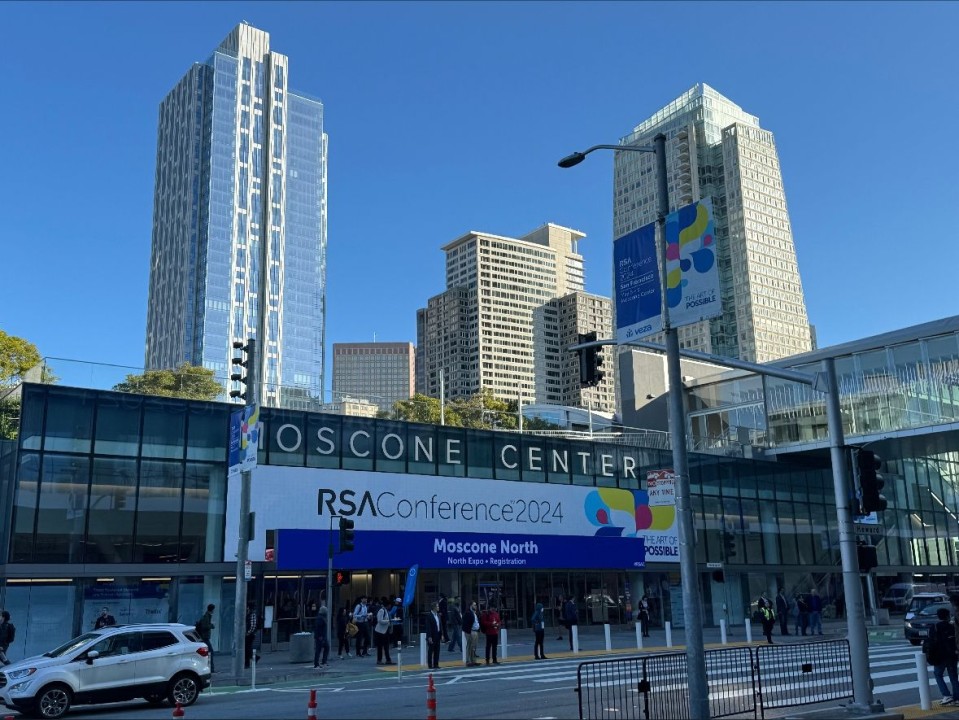
The RSA Conference 2024 has highlighted a profound transformation in the cybersecurity landscape. What were once buzzwords, AI and large language models (LLMs), have now become central to both offensive and defensive strategies in the industry. In this article, we explore the key takeaways from the conference, enriched by insights from Cédric Enzler, CEO of e-Xpert Solutions and President of Swiss Expert Group.
The Evolution from Buzzwords to Real-world Applications
A year ago, AI and LLMs were frequently mentioned but rarely understood in practical terms. Today, their applications are integral to cybersecurity operations. This shift was palpable throughout the four-day conference, which saw 41,000 participants, 425 sessions, and 600 exhibitors.
Offensive Security: A New Battlefield
The offensive use of AI has evolved rapidly. Cyber attackers are increasingly targeting machine learning (ML) algorithms, aiming to manipulate and bias them. In response, the cybersecurity community is developing MLSecOps (Machine Learning SecOps), a new discipline akin to DevSecOps but focused on safeguarding AI algorithms throughout their lifecycle. The OWASP has also been proactive, publishing the OWASP Top 10 for LLMs, which outlines the most critical vulnerabilities and risks associated with these technologies.
Defensive Security: Enhancing Capabilities
AI’s role in defensive security has become more pronounced and multifaceted:
Revolutionizing SOCs: AI is transforming Security Operations Centers (SOCs) by taking over tasks typically handled by Level 1 analysts, thereby speeding up their progression to more advanced roles. This not only accelerates incident triage but also enhances the scripting and contextualization capabilities of Level 2 and 3 analysts. While a fully autonomous SOC still remains a future vision, AI significantly boosts analysts’ efficiency, epitomized by the mantra “less do it yourself, more do it with AI.”
Enhanced Threat Intelligence: GenAI’s ability to ingest and contextualize threat intelligence vastly improves attack detection and containment times. By automating and enhancing scripting, GenAI enables faster, more accurate responses to security incidents.
Superior Malware Detection: LLMs have shown to be more effective than traditional antimalware tools in detecting malicious software. Their proficiency in interpreting coded actions gives them an edge over conventional methods, as demonstrated in comparisons like LLMs versus other know sources such as VirusTotal.
Data Security Posture Management (DSPM): AI is poised to revolutionize DSPM by enabling real-time data classification and leak detection. This development enhances Data Loss Prevention (DLP) solutions, empowering operators to better manage data breach risks through AI-driven insights.
Broader Industry Trends
Beside AI-powered cybersecurity, the conference highlighted major trends around SOC/XDR services, Microsegmentation, SASE, Application Security Posture Management, Data Security Posture Management and Software Life Cyle Management.
Recognizing Innovation
« Reality Defense » emerged as the winner of the RSAC 2024 Innovation Sandbox contest, showcasing AI-powered solutions to detect DeepFakes. This technology is already being adopted by several U.S. banks to verify caller identities beyond standard voice validation protocols, addressing a critical security need in an era of sophisticated social engineering attacks.
Major Players and Government Presence
Tech giants like Microsoft, Google, Cisco, and CrowdStrike dominated the conference, reflecting their substantial investments in cybersecurity. Their comprehensive platforms span multiple security layers, offering consolidated visibility and observability.
The significant presence of U.S. government officials, including Secretary of State Antony Blinken and representatives from CISA and US Cyber Command, highlighted the critical intersection of AI, cybersecurity, and democracy. This is particularly pertinent in an election year impacting nearly three billion voters worldwide.
Conclusion: Embracing the Future
As AI continues to integrate into cybersecurity, building AI literacy and foundational education is crucial for organizations. AI is not about replacing security engineers but enhancing their capabilities. Those who fail to adopt AI risk losing their competitive edge, much like the medical field’s adoption of IBM’s Watson for Oncology as an indispensable tool without supplanting the role of oncologists.
The RSA Conference 2024 has made it clear: AI is reshaping cybersecurity, and the sector must adapt to harness its full potential. Embracing these advancements will ensure resilience and efficiency in the face of evolving cyber threats.

RSAC 2024
